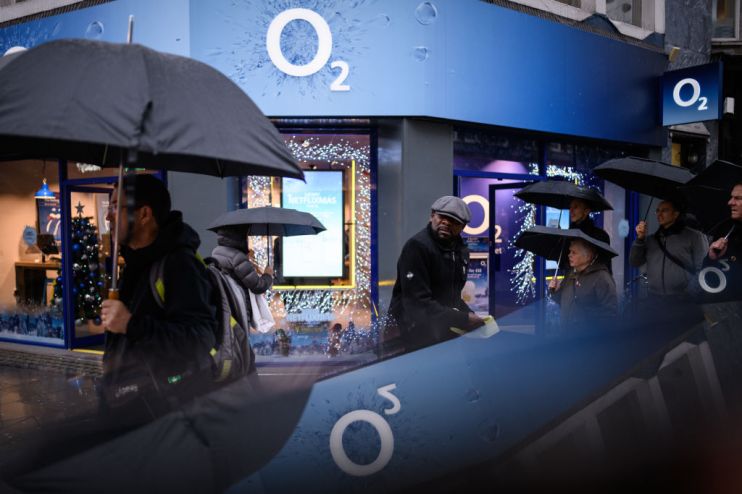O2 revenue rises for third year running as it beefs up customer base

O2 has posted its third consecutive year of revenue and profit growth as the mobile network continued to expand its customer numbers.
Revenue rose 3.8 per cent to hit £6.2bn in the year to the end of December, while operating income was up 2.3 per cent to £1.9bn.
The growth was driven by a continued rise in O2’s customer numbers, which were up 5.7 per cent year on year to hit 34.5m.
O2, which is the UK’s largest mobile network and also serves customers using Giffgaff, Tesco Mobile, Sky Mobile and Lycamobile, credited its “customer fairness and customer centricity” for the growth. Last year the firm recorded a churn rate of just one per cent — the lowest in the sector.
Telecoms analyst Paolo Pescatore said O2 had delivered “another strong set of results in a cut-throat competitive market”, adding: “This is a testament to its customer-centric approach.”
Capital expenditure was up 3.4 per cent last year to £801m as O2 pumped money into its 5G network, which launched in the UK in October. The network reach 21 locations by the end of the year, with plans to hit 50 by summer 2020.
While the company is unlikely to have seen a benefit from the new high-speed network in 2019, it will likely benefit from its decision not to use equipment made by Chinese tech firm Huawei, unlike rivals Vodafone, Three and BT-owned EE.
BT has warned that the government’s restrictions on Huawei — which include a 35 per cent market share cap — will set the firm back £500m, while Vodafone estimated costs of £200m.
Chief executive Mark Evans acknowledged that other mobile networks would have to switch infrastructure providers, but played down suggestions his company now had a competitive advantage.
“I don’t believe what the government brought in will disrupt them too much,” he told City A.M.
Separately, mobile firms are also facing a crackdown from regulator Ofcom to ensure customers are warned when their contract is ending and are informed of the best possible deal.
O2 has welcomed the call to treat customers fairly, and said its customers benefit by up to £50 a month due to the company’s commitment to fair bills. “O2 has a clear competitive advantage in this area while others are playing catch-up,” Pescatore said.
Last year the government unveiled a £1bn plan to improve mobile coverage in rural areas in a bid to crack down on so-called not spots.
The UK’s four major mobile networks have been asked to finalise details for a so-called shared rural network, though new proposals from BT over how to split the costs of the venture have threatened to slow down the process.
Boss Evans told City A.M. the companies had not yet put pen to paper, but said he was “very confident” a deal could be struck — ideally in time for the upcoming Budget on 11 March.
In a statement Evans said: “Today we’re marking 18 years of serving UK customers. Our third full year of consecutive topline growth, profitability and rising customer numbers is something our teams can be proud of.”
“From the very beginning, we’ve had a relentless ambition to champion customer fairness, investing to provide the best possible experience for those using our network. But customers who aren’t with O2 are still being penalised for their loyalty to their phone networks.”
The strong full-year results came despite disappointing fourth-quarter figures from parent company Telefonica.
Shares in the Spanish firm fell as much as five per cent this morning after it posted a net loss of €202m (£170m) in the final three months of the year.
The figures were weighed down by an expensive layoff programme in the firm’s home country, as well as losses in Mexico and an impairment charge in Argentina.